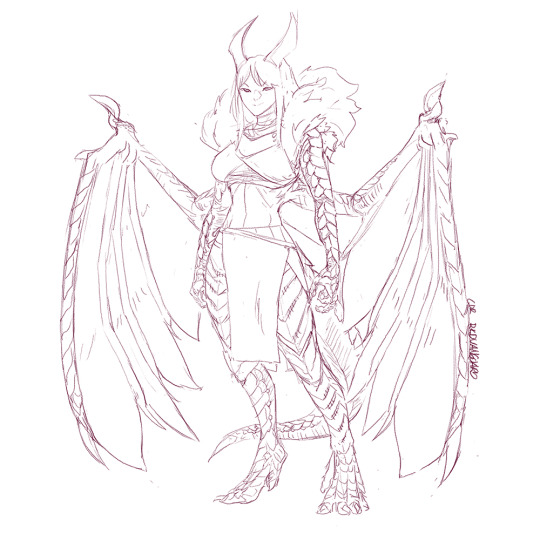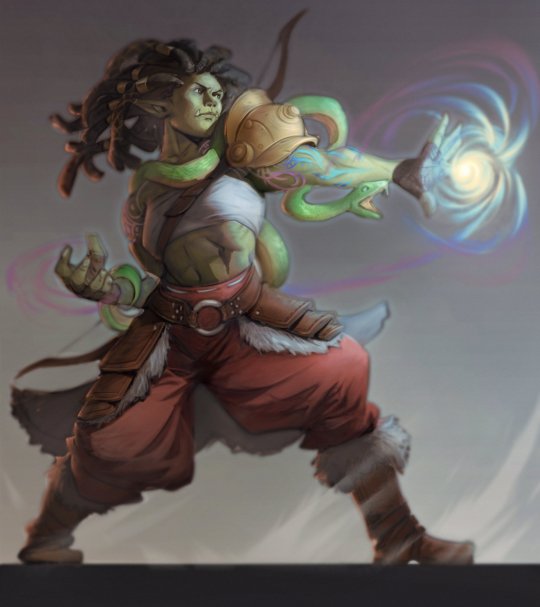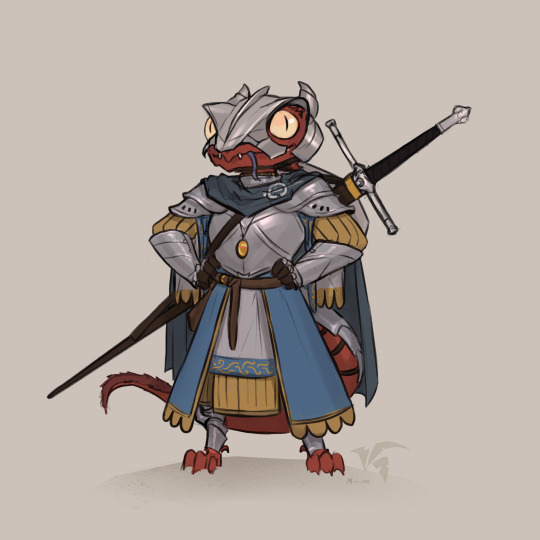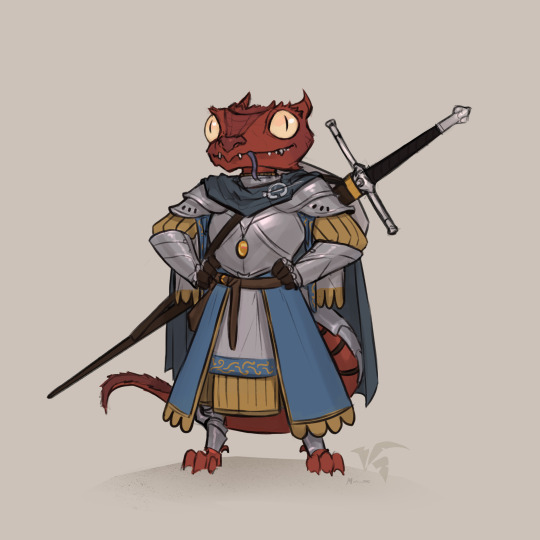Text
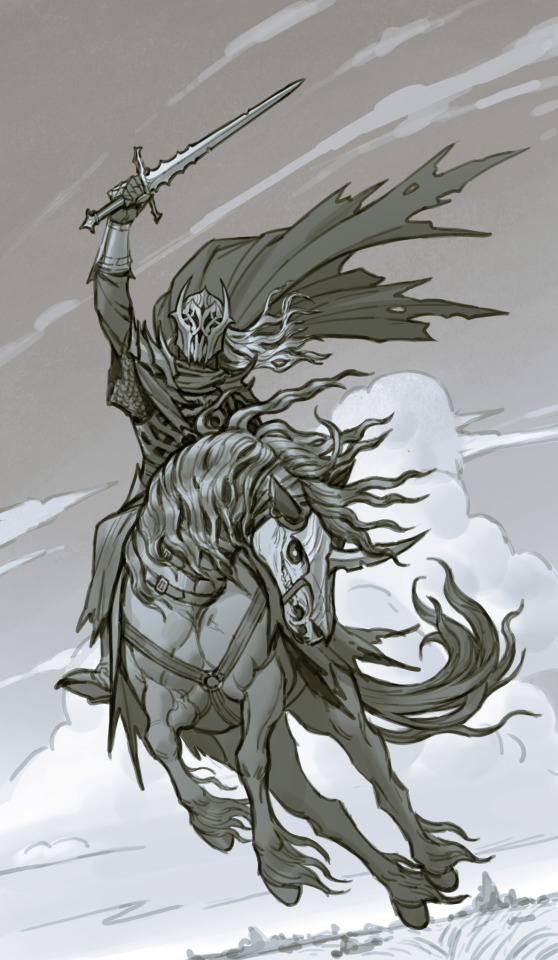
super swamped with projects. Idk when I'll have time for personal work again.
110 notes
·
View notes
Photo
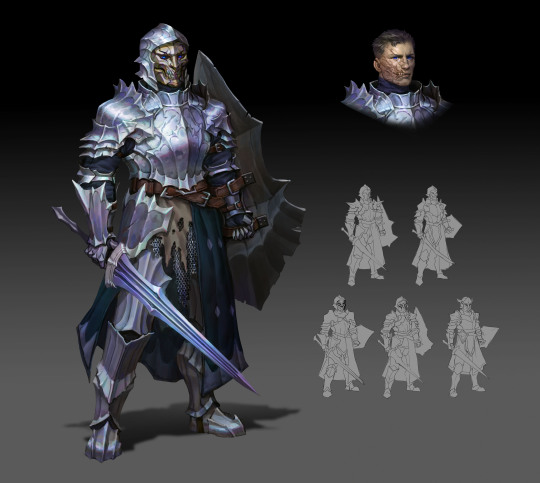
Started a new dnd game with friends from work. I really liked playing eldritch knight so I made another one.
Frost is our team doorstop. Good at blocking the hall bad at everything else.
92 notes
·
View notes
Text
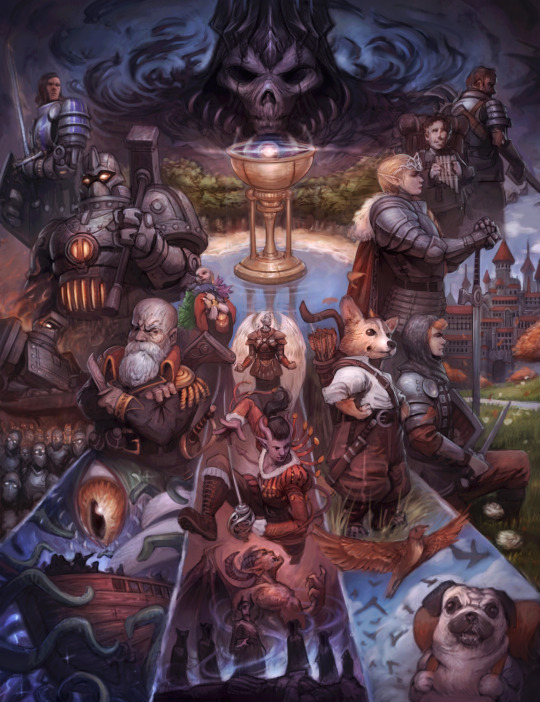
an early/extremely late christmas gift for friends of their recently concluded long-running DnD campaign
454 notes
·
View notes
Photo
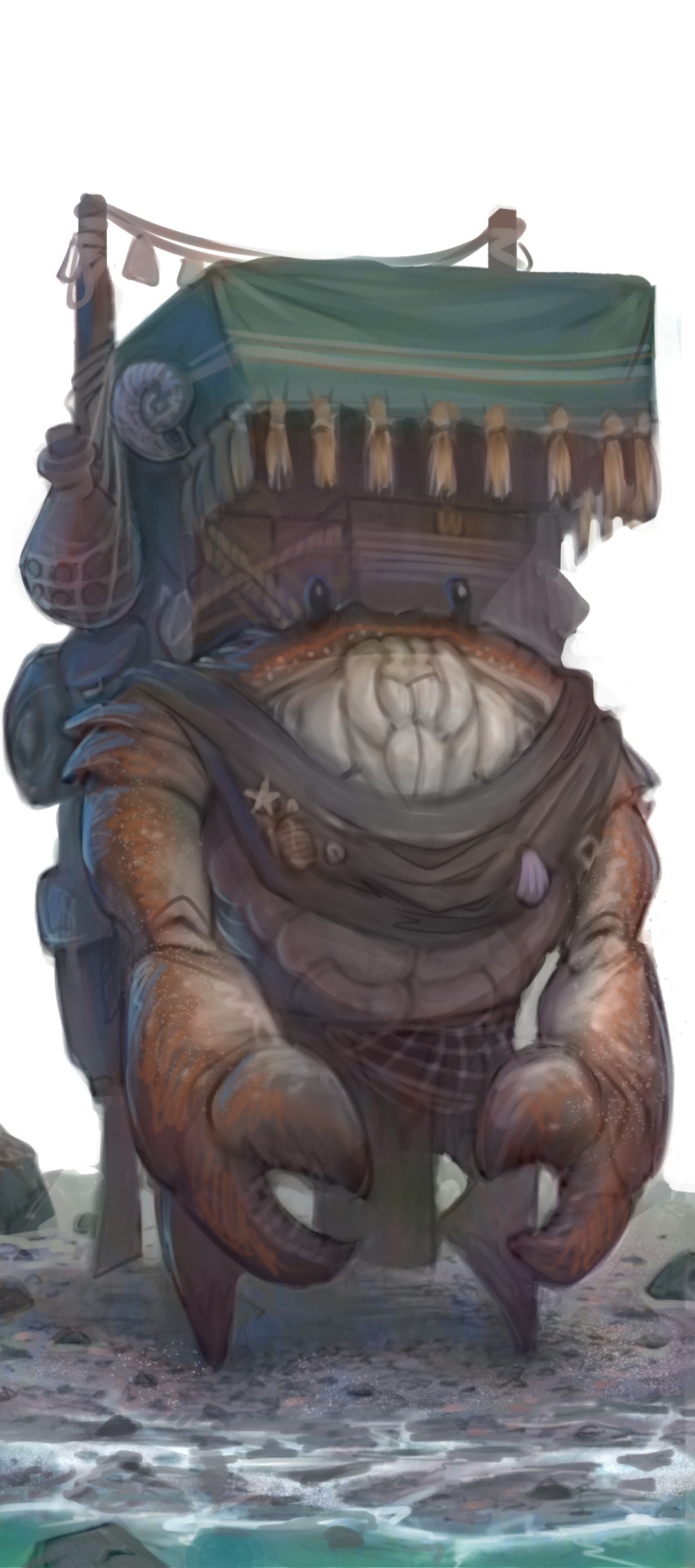
1/3 unique Highfane lineages, Erfitt. big crab, we love
2K notes
·
View notes
Text
Common Occupations in the Middle Ages
Almoners: ensured the poor received alms.
Atilliator: skilled castle worker who made crossbows.
Baliff: in charge of allotting jobs to the peasants, building repair, and repair of tools used by the peasants.
Barber: someone who cut hair. Also served as dentists, surgeons and blood-letters.
Blacksmith: forged and sharpened tools and weapons, beat out dents in armor, made hinges for doors, and window grills. Also referred to as Smiths.
Bottler: in charge of the buttery or bottlery.
Butler: cared for the cellar and was in charge of large butts and little butts (bottles) of wine and beer. Under him a staff of people might consist of brewers, tapsters, cellarers, dispensers, cupbearers and dapifer.
Carder: someone who brushed cloth during its manufacture.
Carpenter: built flooring, roofing, siege engines, furniture, panelling for rooms, and scaffoling for building.
Carters: workmen who brought wood and stone to the site of a castle under construction.
Castellan: resident owner or person in charge of a castle (custodian).
Chamberlain: responsible for the great chamber and for the personal finances of the castellan.
Chaplain: provided spirtual welfare for laborers and the castle garrison. The duties might also include supervising building operations, clerk, and keeping accounts. He also tended to the chapel.
Clerk: a person who checked material costs, wages, and kept accounts.
Constable: a person who took care (the governor or warden) of a castle in the absence of the owner. This was sometimes bestowed upon a great baron as an honor and some royal castles had hereditary constables.
Cook: roasted, broiled, and baked food in the fireplaces and ovens.
Cottars: the lowest of the peasantry. Worked as swine-herds, prison guards, and did odd jobs.
Ditcher: worker who dug moats, vaults, foundations and mines.
Dyer: someone who dyed cloth in huge heated vats during its manufacture.
Ewerer: worker who brought and heated water for the nobles.
Falconer: highly skilled expert responsible for the care and training of hawks for the sport of falconry.
Fuller: worker who shrinks & thickens cloth fibers through wetting & beating the material.
Glaziers: a person who cut and shaped glass.
Gong Farmer: a latrine pit emptier.
Hayward: someone who tended the hedges.
Herald: knights assistant and an expert advisor on heraldry.
Keeper of the Wardrobe: in charge of the tailors and laundress.
Knight: a professional soldier. This was achieved only after long and arduous training which began in infancy.
Laird: minor baron or small landlord.
Marshal: officer in charge of a household’s horses, carts, wagons, and containers. His staff included farriers, grooms, carters, smiths and clerks. He also oversaw the transporting of goods.
Master Mason: responsible for the designing and overseeing the building of a structure.
Messengers: servants of the lord who carried receipts, letters, and commodities.
Miner: skilled professional who dug tunnels for the purpose of undermining a castle.
Minstrels: part of of the castle staff who provided entertainment in the form of singing and playing musical instruments.
Porter: took care of the doors (janitor), particularly the main entrance. Responsible for the guardrooms. The person also insured that no one entered or left the castle withour permission. Also known as the door-ward.
Reeve: supervised the work on lord’s property. He checked that everyone began and stopped work on time, and insured nothing was stolen. Senior officer of a borough.
Sapper: an unskilled person who dug a mine or approach tunnel.
Scullions: responsible for washing and cleaning in the kitchen.
Shearmen: a person who trimmed the cloth during its manufacture.
Shoemaker: a craftsman who made shoes. Known also as Cordwainers.
Spinster: a name given to a woman who earned her living spinning yarn. Later this was expanded and any unmarried woman was called a spinster.
Steward: took care of the estate and domestic administration. Supervised the household and events in the great hall. Also referred to as a Seneschal.
Squire: attained at the age of 14 while training as a knight. He would be assigned to a knight to carry and care for the weapons and horse.
Watchmen: an official at the castle responsible for security. Assited by lookouts (the garrison).
Weaver: someone who cleaned and compacted cloth, in association with the Walker and Fuller.
Woodworkers: tradesmen called Board-hewers who worked in the forest, producing joists and beams.
Other medieval jobs included:
tanners, soap makers, cask makers, cloth makers, candle makers (chandlers), gold and silver smiths, laundresses, bakers, grooms, pages, huntsmen, doctors, painters, plasterers, and painters, potters, brick and tile makers, glass makers, shipwrights, sailors, butchers, fishmongers, farmers, herdsmen, millers, the clergy, parish priests, members of the monastic orders, innkeepers, roadmenders, woodwards (for the forests). slingers. Other Domestic jobs inside the castle or manor:
Personal atendants- ladies-in-waiting, chamber maids, doctor.
The myriad of people involved in the preparation and serving of meals- brewers, poulterer, fruiterers, slaughterers, dispensers, cooks and the cupbearers.
By Lise Hull READ MORE
49K notes
·
View notes
Photo
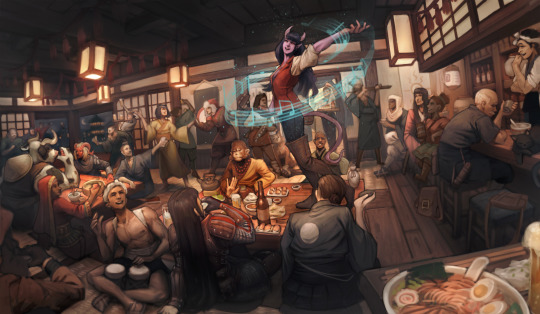
I’ve gotten to do a holiday comm for this party and their ongoing campaign for like 3 years or so now, and this was the most recent from a few months back 🏮
118 notes
·
View notes
Text
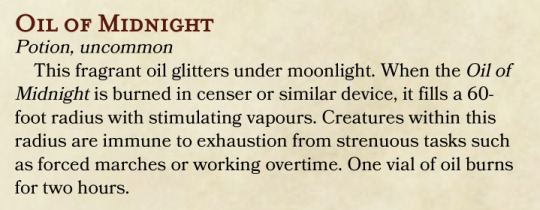
Unfortunately it doesn't produce much light from inside a censer, so you'll still need to burn your candles at both ends while using it.
52 notes
·
View notes
Photo
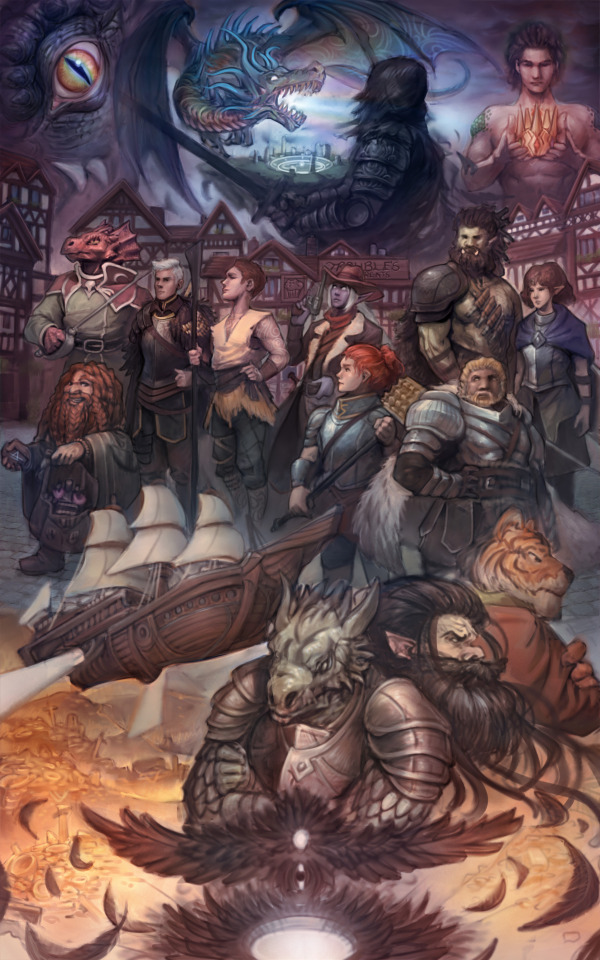
big poster piece for a group’s DnD campaign 🐉
300 notes
·
View notes
Text
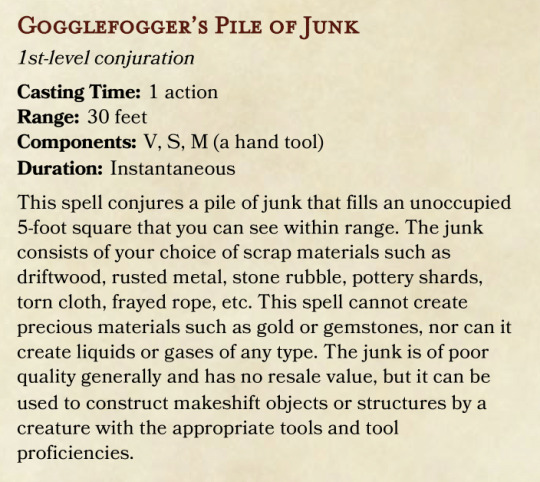
As Professor Orryn Talfough-Gogglefogger is fond of saying: one man's trash is another gnome's treasure!
99 notes
·
View notes
Text
Make in-character email accounts for modern campaigns so the gm can send you "handouts" by mail
130 notes
·
View notes
Text
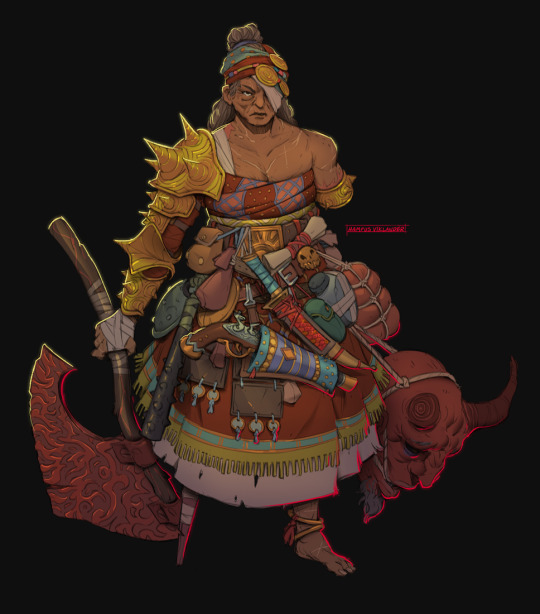
Ire the Pactless
Human mortal, slayer of two Archdevils and general bogeyman of the hells 🪓😠
722 notes
·
View notes
Photo
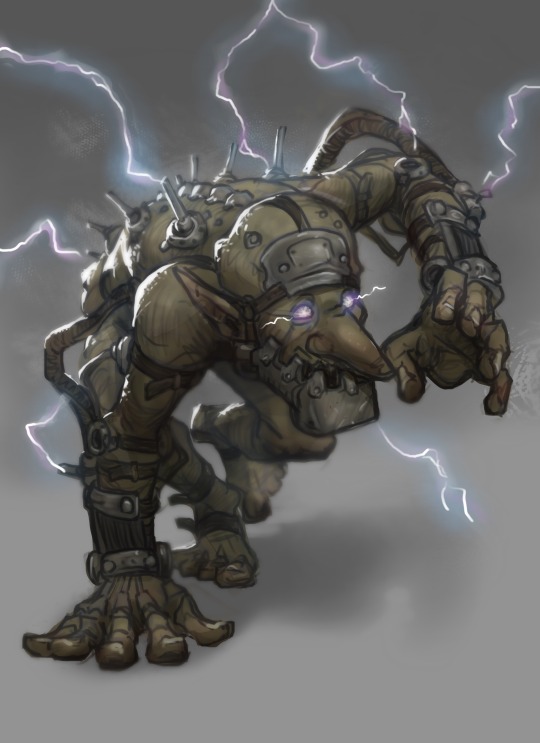
#goblinweek going strong day 2
“Oh no who was doing horrible experiments to this poor creature” but what a fool you are, he did this to himself and he loves it, the absolute little freak
50 notes
·
View notes

